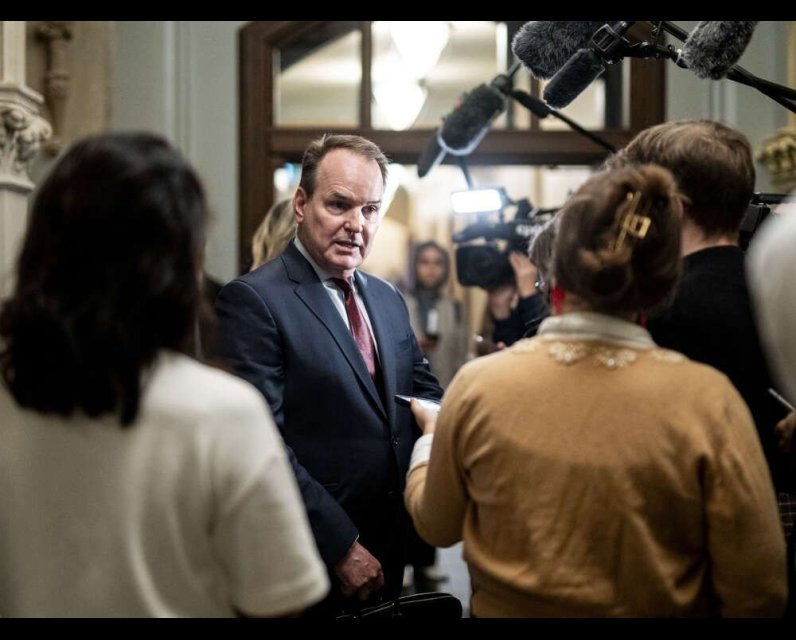With one week to go before the budget, it's still not clear how the Liberals will avoid an early election

OTTAWA — With one week to go before Mark Carney’s government tables its first budget with no clear partner in sight, the Liberals and opposition parties are pointing fingers at each other in an attempt to shift the blame in case of a snap election.
The minority Liberals currently have 169 seats — just three seats shy of a majority — which means that they need to find at least three MPs from the opposition benches to either support their budget or abstain to ensure that they survive their confidence vote.
If they don’t, Canadians could be headed to the polls during the Christmas season.
That is exactly the scenario that Government House Leader Steven MacKinnon has been threatening could happen in televised interviews over the weekend, claiming that his government does not currently have enough votes to pass the federal budget.
“Of course, they don’t have the numbers yet,” said Lori Turnbull, professor in the Faculty of Management at Dalhousie University, in an interview. “Surely, they can’t expect the opposition parties to say they’re going to support (the budget) when they haven’t seen it.”
The budget will be tabled by Finance Minister François-Philippe Champagne on Nov. 4 and MPs are expected to debate a Conservative amendment and Bloc Québécois subamendment to the budget before they leave for Remembrance Day break week.
That means that the first confidence vote on the budget could happen as early as mid-November, when MPs come back to Ottawa.
“Budget 2025 is about meeting this hinge moment, building a stronger economy where everyone has a chance to get ahead, and empowering Canadians with new opportunities, better careers, and a lower cost of living,” said John Fragos, Champagne’s spokesman.
“There is no appetite for political games at this hinge moment,” he insisted.
On Tuesday, Conservative Leader Pierre Poilievre declined to say if his party would be willing to bring down the government with the budget and spark an early election.
“Our message to the Liberals is that we want an affordable budget for an affordable Canada. We want the government to bring down the cost of its spending so we can bring down the cost of living,” Poilievre said during a press conference in Ottawa.
“So, it will be up to them. If they’re going to increase the cost of living for Canadians again with more inflationary spending, then Canadians will judge them accordingly.”
Poilievre also declined to say, when pressed by another reporter, if he and every one of his 143 MPs would be sitting in the House of Commons during the vote on the budget.
The opposition leader been asking for the government to keep the deficit under the $42 billion mark and to scrap “hidden taxes” on food which the Liberals deny exist.
Bloc Leader Yves-François Blanchet had previously said his party would not be supporting the budget before his party presented a series of six “non-negotiable” demands that include higher Old Age Security transfers to seniors aged 65-74, among other things.
“It is the exclusive responsibility of the Liberals to find someone with whom (they can) reach an agreement in order to have their budget eventually adopted,” he said Tuesday.
“I believe that communication channels are still open.”
Then, there are also seven NDP MPs and Green Party Leader Elizabeth May to turn to.
May told reporters on Monday that she’s made it “very clear” to the government that she would not vote for a budget that includes “fossil fuel subsidies.”
“That’s my one condition. Otherwise, I haven’t read the budget yet, so I haven’t decided how I’m going to vote,” she said.
An NDP source said the party has not presented a “shopping list” of demands of its own, nor will it come to a decision about the budget before it is tabled next week.
However, observers have pointed out it is unlikely that the NDP would support an “austerity” budget with cuts in the public service.
Carney met with all four party leaders earlier this month, and MacKinnon and Champagne have been also having ongoing talks with representatives of all parties before the budget.
However, the NDP source said there has not been a “flurry of activity” from the government to convince opposition parties to support its budget until now. They described the ongoing talks with various parties, not as negotiations, but as “pro forma” discussions.
Former Liberal minister Marc Miller candidly admitted that things were easier when the government had a deal with the NDP, but he said “each vote was a negotiation” with higher stakes each time and the process “probably gave too much power” to the NDP caucus.
May said that there are options for the government to ensure that it doesn’t fall, whether it would be negotiating a new confidence and supply agreement with an opposition party or simply delaying the vote on the budget to make sure there are enough votes to pass it.
“We’re in a minority Parliament. There is no one, all powerful player here. We have to work together. That’s a good thing for democracy.”
National Post calevesque@postmedia.com
Our website is the place for the latest breaking news, exclusive scoops, longreads and provocative commentary. Please bookmark nationalpost.com and sign up for our newsletters here.



Comments
Be the first to comment